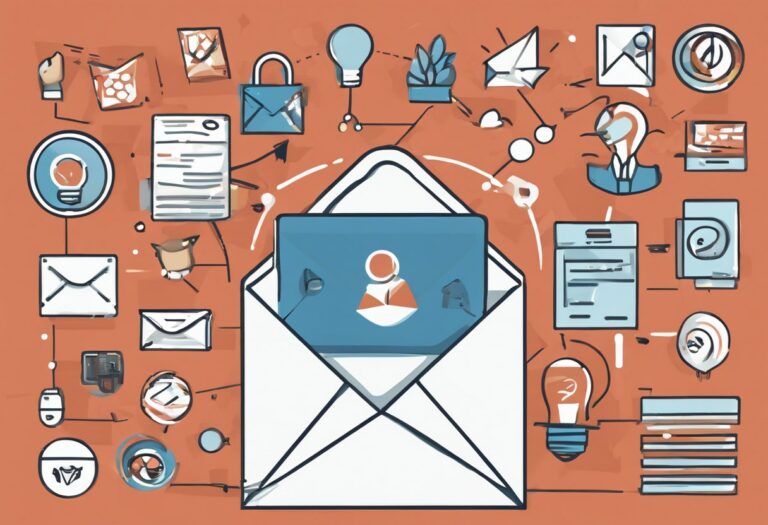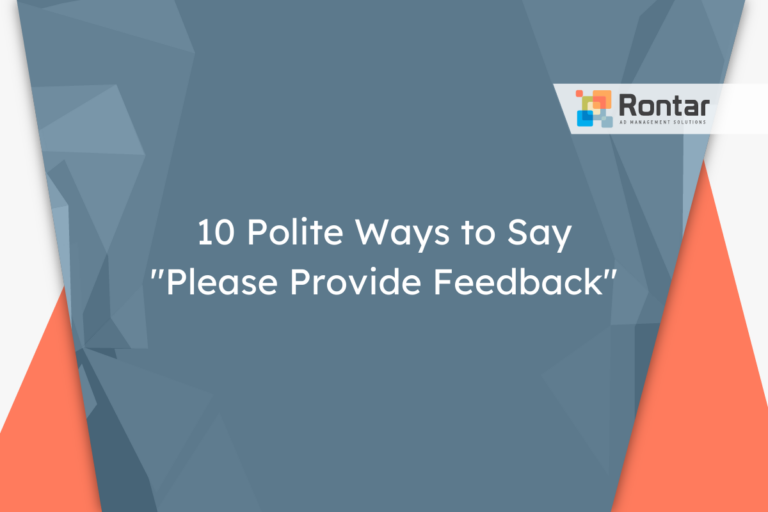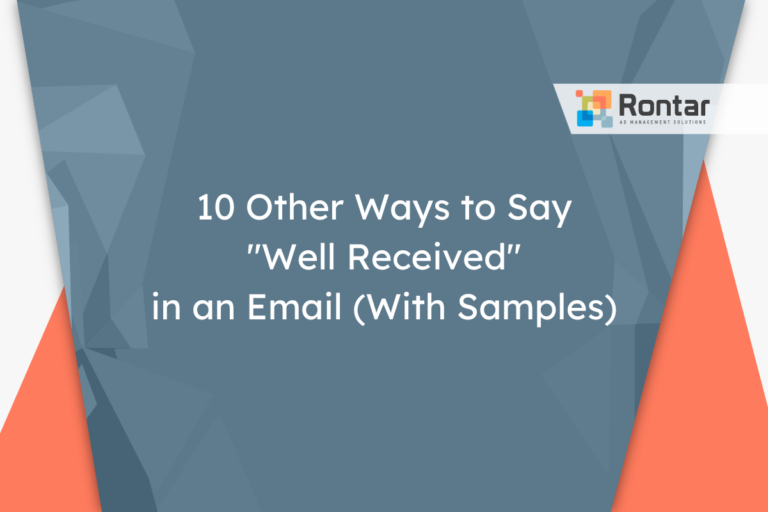12 Other Ways to Say “Please Let Me Know if You Need Anything Else”

Offering help is a key part of communicating, especially in emails or messages. Sometimes, saying “Please let me know if you need anything else” feels too repetitive.
In this article, we explore twelve other ways to express this idea. Each alternative is explained with examples to show how you can make your communication more engaging and appropriate for different situations.
Is It Professional to Say “Please Let Me Know if You Need Anything Else”?
Yes, saying “Please let me know if you need anything else” is considered professional, formal or informal depending on the context, and definitely polite. This phrase is versatile and can be used in various communication settings to indicate you are willing to provide further assistance. It’s particularly useful in emails, meetings, and customer service interactions to ensure the recipient knows you’re available to help with additional queries or concerns.
This phrase is best used when you’ve already provided some information or completed a task for someone and want to offer further support. It’s a polite way to close a conversation, signaling you’re open to continuing the interaction if the other person needs more help.
Here’s a short example of how it might appear in an email:
Hi Alex, Thank you for sending over the details of your request. I've updated the project timeline accordingly and attached it for your review. Please let me know if you need anything else. Best regards, Emily
Pros:
- Shows willingness to help further, making the interaction positive.
- Enhances communication clarity and openness.
- Builds goodwill and a supportive atmosphere.
Cons:
- May be perceived as overly formal in very casual settings.
- Could be seen as unnecessary if the conversation already clearly ended.
- Some may prefer more specific ways of offering help.
While this phrase is widely accepted and understood, some situations may call for a different approach. People might seek synonyms or alternatives to tailor their message more closely to the context or relationship with the recipient. Using a synonym or an alternative can also help avoid repetition in ongoing communications, making each interaction feel more personalized and thoughtful.
Deciding whether to use a different phrase often depends on the desired tone, the level of formality, and personal or organizational communication styles.
12 Other Ways to Say “Please Let Me Know if You Need Anything Else”
Exploring different ways to offer help can make your messages feel fresh and considerate. Here are ten alternatives to the classic phrase:
- Please let me know if you need any further assistance.
- Feel free to reach out for further assistance.
- Please feel free to contact me if you need any further assistance.
- Let me know if there’s anything more I can do for you.
- I’m here if you need anything else.
- Let me know if there’s anything else I can help with.
- Please let me know if anything else is needed.
- Please contact me if you need further assistance.
- Should you need more help, please let me know.
- I’m here if you need more help.
- Please feel free to contact me if you still need help.
- Is there anything else I can help you with?
1. Please let me know if you need any further assistance.
This alternative is very similar to the original phrase but adds a touch of formality by emphasizing “any further assistance.” It’s suitable in both professional and formal contexts, as it conveys a willingness to continue providing support.
This phrase is particularly effective in email correspondence with clients or colleagues to whom you’ve already provided some assistance. It reassures the recipient of your ongoing support and availability.
Here’s a sample email using this alternative:
Hi Samantha, Thank you for your inquiry about our software updates. I've attached the detailed instructions for the installation process. Please let me know if you need any further assistance. Best regards, Emily
2. Feel free to reach out for further assistance.
This version is more informal and creates a friendly atmosphere. It suggests that the recipient has the freedom to contact you at their convenience, making it ideal for messages where you want to appear approachable.
It’s best used when you’ve established a comfortable relationship with the recipient and want to encourage them to communicate openly without hesitation.
Example of use in an email:
Hello Alex, I hope you're enjoying our product. Remember, we're always looking to improve, so your feedback is invaluable. Feel free to reach out for further assistance. Warm regards, Jordan
3. Please feel free to contact me if you need any further assistance.
This phrase combines politeness and formality, making it perfect for professional settings. It reassures the recipient that their queries or issues are welcome and that you’re available to address them.
Use this when you wish to emphasize your openness and availability to assist, especially after providing detailed information or resolving a complex issue.
Here’s a sample email:
Hi Thomas, Attached is the report you requested, along with our analysis and recommendations for the next quarter. Please feel free to contact me if you need any further assistance. Best wishes, Linda
4. Let me know if there’s anything more I can do for you.
This phrase is less formal and implies a personalized approach to assistance. It’s a great way to show your dedication to serving the recipient’s needs fully.
It’s most effective in situations where you have already provided a service or help, and you want to ensure the recipient is completely satisfied.
Example:
Hi Connor, I've updated your account settings as requested. You should now have access to all the features. Let me know if there's anything more I can do for you. Cheers, Mia
5. I’m here if you need anything else.
This is an informal and friendly way to offer help, giving off a relaxed and approachable vibe. It’s great for conversations with colleagues or clients with whom you have a good relationship.
This phrase works well when you want to keep communication lines open without being overly formal. It’s perfect for a quick follow-up message.
Example of use:
Hi Jeremy, I've sent over the documents you asked for. Review them at your leisure. I'm here if you need anything else. Take care, Sophia
6. Let me know if there’s anything else I can help with.
This alternative is versatile, striking a balance between formal and informal. It’s a great way to conclude messages where you’ve offered specific assistance but are open to providing more help.
It suits most communication scenarios, especially when you want to be helpful without assuming that the recipient needs further assistance.
Here’s a sample email:
Hi Martin, I've scheduled the meeting for Thursday at 10 AM as you requested. The agenda is attached for your review. Let me know if there's anything else I can help with. Regards, Natalie
7. Please let me know if anything else is needed.
This is a formal way to offer assistance, suitable for professional and business contexts. It positions you as attentive and ready to provide additional support.
It is particularly effective at the end of a comprehensive communication or service, signaling that you are attentive to any further requirements.
Example:
Hi Franklin, Your order has been processed and shipped. Tracking details are included for your convenience. Please let me know if anything else is needed. Best, Olivia
8. Please contact me if you need further assistance.
This phrase is formal and direct, making it a solid choice for professional settings. It clearly invites the recipient to get in touch if they require more help, emphasizing your role as a supportive contact.
This alternative is well-suited for emails or messages that follow up on a query or service, offering a clear call to action for the recipient.
Here’s how you could use it in an email:
Hi Zoe, I have updated your subscription as requested. All features are now available to you. Please contact me if you need further assistance. Sincerely, Ethan
9. Should you need more help, please let me know
This alternative is more formal than the original phrase. It’s a polite way to offer further assistance, suggesting readiness without being too forward. This version works well in professional settings where maintaining a formal tone is important. It subtly indicates that you’re willing to provide more help, leaving the door open for future requests.
This phrase is especially suited for situations where you want to be respectful and show that you are available to assist without imposing. It’s perfect for emails to clients or senior colleagues where a higher level of formality is appreciated.
Here’s a sample email using this alternative:
Dear Mr. Thompson, Thank you for your query regarding our software updates. We have processed your request and attached the detailed documentation. Should you need more help, please let me know. Best regards, Emily Parker Customer Support Specialist
10. I’m here if you need more help
This phrase is somewhat informal and conveys a friendly, approachable tone. It’s a great way to offer additional help while making yourself seem accessible and personable. This alternative is ideal for conversations with colleagues you know well or in less formal email exchanges.
Use this when you want to give your message a personal touch or when communicating with someone you have a more casual relationship with. It helps to build rapport and makes the recipient feel comfortable reaching out for more assistance.
Here’s an example email:
Hi Alex, I've updated the project timeline based on our last meeting and included a few suggestions for the next phases. I'm here if you need more help. Cheers, Jordan Project Manager
11. Please feel free to contact me if you still need help
This alternative is both professional and polite, striking a balance between formality and accessibility. It suggests openness to further communication and reassures the recipient that help is available on request. This phrase is versatile and can be used in a wide range of scenarios, from customer service to internal team communications.
It’s particularly effective in situations where you want to encourage ongoing dialogue or when you’re offering support in a scenario that might require follow-up assistance. It reassures the recipient that you’re not just a one-time helper but a continuous support resource.
Example:
Hi Laura, I have reviewed your account details and made the necessary adjustments. You should see the changes reflected within 24 hours. Please feel free to contact me if you still need help. Warm regards, Simon Patel Account Manager
12. Is there anything else I can help you with?
This question is a direct and polite way to offer further assistance. It encourages the recipient to voice any additional needs or concerns they might have. This approach is very engaging because it invites a response, fostering a two-way communication channel. It’s well-suited for customer service roles or any situation where you want to ensure the recipient’s needs are fully met.
This alternative is best when you aim to conclude a conversation or meeting on a positive note, ensuring there are no remaining questions or concerns. It’s a proactive way to offer help and ensures that the recipient feels their needs have been thoroughly addressed.
Example:
Hi Vanessa, I hope the provided documents on our return policy were helpful and clarified your questions. Is there anything else I can help you with? Kindly, Ethan Moore Support Team Lead
Final Thoughts
Choosing the right way to offer help can make a big difference in how your message is received. By using the alternatives provided, you can match your tone to the situation, whether it needs to be more formal or casual. These options also show that you care about the recipient’s needs and are willing to assist further.






